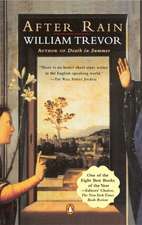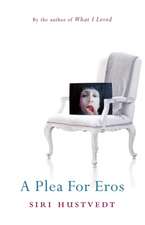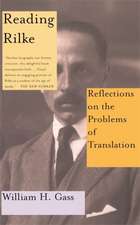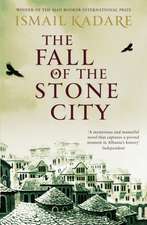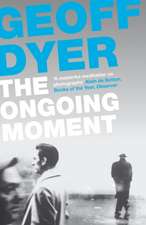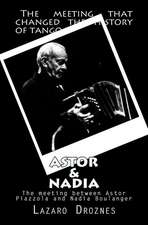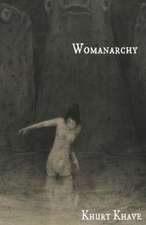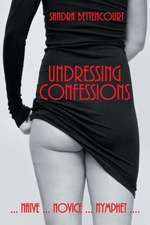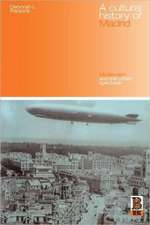Transit: Virago Modern Classics
Autor Anna Seghers Traducere de Margot Bettauer Demboen Limba Engleză Paperback – dec 2021
'They kept streaming into the only port over which the French flag still waved. The masses wanting to leave the continent each week would have manned a giant flotilla. Yet not even one sad little ship was sailing on a weekly basis anymore.'
Having escaped from a Nazi concentration camp in Germany and a work camp in Rouen, the nameless narrator finds himself in the dusty seaport of Marseille. Along the way he was asked to deliver a letter to Weidel, a writer in Paris whom he discovered had killed himself as the Nazis entered the city. Now he is in search of the dead man's wife. He carries Weidel's suitcase, which contains an unfinished novel - and a letter securing Weidel a visa to escape France.
Assuming the name Seidler - though the authorities think he is in fact Weidel - he goes from cafe to cafe looking for Marie, who is in turn anxiously searching for her husband. As Seidler converses with refugees over pizza and wine, their stories gradually break down his ennui, bringing him a deeper awareness of the transitory world they inhabit as they wait and wait for that most precious of possessions: transit papers.
An existential, political and literary thriller first published in 1944, Transit is a multi-layered wartime masterpiece that explores the plight of the refugee with extraordinary compassion and insight.
'Transit belongs to those books that entered my life, and which I continue to engage with in my writing, so much that I have to pick it up every couple years to see what has happened between me and it' Christa Wolf
| Toate formatele și edițiile | Preț | Express |
|---|---|---|
| Paperback (2) | 48.78 lei 3-5 săpt. | +24.84 lei 4-10 zile |
| Little Brown Book Group – dec 2021 | 48.78 lei 3-5 săpt. | +24.84 lei 4-10 zile |
| NEW YORK REVIEW OF BOOKS – 31 iul 2013 | 92.77 lei 3-5 săpt. |
Din seria Virago Modern Classics
-
 Preț: 43.03 lei
Preț: 43.03 lei -
 Preț: 62.79 lei
Preț: 62.79 lei - 20%
 Preț: 52.41 lei
Preț: 52.41 lei - 25%
 Preț: 46.62 lei
Preț: 46.62 lei - 25%
 Preț: 47.34 lei
Preț: 47.34 lei - 23%
 Preț: 49.11 lei
Preț: 49.11 lei - 21%
 Preț: 57.46 lei
Preț: 57.46 lei - 24%
 Preț: 53.53 lei
Preț: 53.53 lei - 24%
 Preț: 48.07 lei
Preț: 48.07 lei - 24%
 Preț: 53.46 lei
Preț: 53.46 lei - 24%
 Preț: 48.45 lei
Preț: 48.45 lei - 25%
 Preț: 46.84 lei
Preț: 46.84 lei - 24%
 Preț: 48.07 lei
Preț: 48.07 lei - 25%
 Preț: 51.69 lei
Preț: 51.69 lei - 25%
 Preț: 61.65 lei
Preț: 61.65 lei - 24%
 Preț: 47.59 lei
Preț: 47.59 lei - 22%
 Preț: 50.23 lei
Preț: 50.23 lei - 25%
 Preț: 47.33 lei
Preț: 47.33 lei - 22%
 Preț: 55.35 lei
Preț: 55.35 lei - 25%
 Preț: 47.38 lei
Preț: 47.38 lei - 23%
 Preț: 73.59 lei
Preț: 73.59 lei - 24%
 Preț: 53.37 lei
Preț: 53.37 lei - 24%
 Preț: 48.70 lei
Preț: 48.70 lei - 23%
 Preț: 48.97 lei
Preț: 48.97 lei - 18%
 Preț: 82.52 lei
Preț: 82.52 lei - 25%
 Preț: 51.38 lei
Preț: 51.38 lei - 24%
 Preț: 48.00 lei
Preț: 48.00 lei - 24%
 Preț: 53.18 lei
Preț: 53.18 lei - 23%
 Preț: 48.97 lei
Preț: 48.97 lei - 24%
 Preț: 48.00 lei
Preț: 48.00 lei - 24%
 Preț: 48.29 lei
Preț: 48.29 lei - 25%
 Preț: 47.05 lei
Preț: 47.05 lei - 23%
 Preț: 74.00 lei
Preț: 74.00 lei - 25%
 Preț: 47.44 lei
Preț: 47.44 lei - 25%
 Preț: 46.99 lei
Preț: 46.99 lei - 25%
 Preț: 46.77 lei
Preț: 46.77 lei - 24%
 Preț: 47.88 lei
Preț: 47.88 lei - 25%
 Preț: 47.03 lei
Preț: 47.03 lei - 24%
 Preț: 48.53 lei
Preț: 48.53 lei - 22%
 Preț: 50.14 lei
Preț: 50.14 lei - 24%
 Preț: 48.09 lei
Preț: 48.09 lei -
 Preț: 97.18 lei
Preț: 97.18 lei - 25%
 Preț: 46.74 lei
Preț: 46.74 lei - 25%
 Preț: 47.43 lei
Preț: 47.43 lei - 26%
 Preț: 45.64 lei
Preț: 45.64 lei - 23%
 Preț: 43.90 lei
Preț: 43.90 lei -
 Preț: 44.92 lei
Preț: 44.92 lei - 25%
 Preț: 46.92 lei
Preț: 46.92 lei - 25%
 Preț: 47.28 lei
Preț: 47.28 lei - 23%
 Preț: 49.73 lei
Preț: 49.73 lei
Preț: 48.78 lei
Preț vechi: 63.72 lei
-23% Nou
Puncte Express: 73
Preț estimativ în valută:
9.34€ • 10.15$ • 7.85£
9.34€ • 10.15$ • 7.85£
Carte disponibilă
Livrare economică 01-15 aprilie
Livrare express 15-21 martie pentru 34.83 lei
Preluare comenzi: 021 569.72.76
Specificații
ISBN-13: 9780349014708
ISBN-10: 0349014701
Pagini: 288
Dimensiuni: 126 x 196 x 20 mm
Greutate: 0.24 kg
Editura: Little Brown Book Group
Seria Virago Modern Classics
ISBN-10: 0349014701
Pagini: 288
Dimensiuni: 126 x 196 x 20 mm
Greutate: 0.24 kg
Editura: Little Brown Book Group
Seria Virago Modern Classics
Notă biografică
ANNA SEGHERS (1900-1983) was born Netty Reiling in Mainz, Germany, into a Jewish family. In 1924 she received a doctorate in Art History from the University of Heidelberg, and in the same year her first story, written under the name Antje Seghers, was published. During this time, she came into contact with many left-wing intellectuals, including her husband, a Hungarian economist, and began writing in earnest. By the end of 1928, Anna Seghers had joined the Communist Party, given birth to two children and was awarded the Kleist Prize for her first novel, The Revolt of the Fishermen of St Barbara.
As Jew, a Communist and a revolutionary writer, she was blacklisted in Nazi Germany and left for France in 1933 with her family. After the Nazi invasion in 1940, she was forced to flee again and, with the aid of Varian Fry, she and her family sailed from Marseilles to Mexico on a ship that included Victor Serge, André Breton and Claude Lévi-Strauss among its passengers.
Seghers gained international recognition with The Seventh Cross (1942), which became a bestseller. It was the basis for the 1944 MGM film starring Spencer Tracy and was one of the only depictions of Nazi concentration camps during the Second World War in either literature or film. It has been translated into more than thirty languages.
After the war Seghers moved to East Berlin, where she became a prominent figure of East German letters, actively championing the work of younger writers from her position as president of the Writers Union. Among Seghers' internationally acclaimed works are The Seventh Cross; Transit (1944); Excursion of the Dead Girls (1945); The Dead Stay Young (1949); and the story collection Benito's Blue (1973).
As Jew, a Communist and a revolutionary writer, she was blacklisted in Nazi Germany and left for France in 1933 with her family. After the Nazi invasion in 1940, she was forced to flee again and, with the aid of Varian Fry, she and her family sailed from Marseilles to Mexico on a ship that included Victor Serge, André Breton and Claude Lévi-Strauss among its passengers.
Seghers gained international recognition with The Seventh Cross (1942), which became a bestseller. It was the basis for the 1944 MGM film starring Spencer Tracy and was one of the only depictions of Nazi concentration camps during the Second World War in either literature or film. It has been translated into more than thirty languages.
After the war Seghers moved to East Berlin, where she became a prominent figure of East German letters, actively championing the work of younger writers from her position as president of the Writers Union. Among Seghers' internationally acclaimed works are The Seventh Cross; Transit (1944); Excursion of the Dead Girls (1945); The Dead Stay Young (1949); and the story collection Benito's Blue (1973).
Descriere
Anna Seghers's Transit is an existential, political, literary thriller that explores the agonies of boredom, the vitality of storytelling, and the plight of the exile with extraordinary compassion and insight.
Recenzii
“This novel, completed in 1942, is in my opinion the most beautiful Seghers has written. . . . I doubt that our post-1933 literature can point to many novels that have been written with such somnambulistic sureness and are almost flawless.” —Heinrich Böll
“Tranist belongs to those books that entered my life, and to which I continue to engage with in my writing, so much that I have to pick it up every couple years to see what has happened between me and it.” —Christa Wolf
“Transit is Seghers' best full-length novel. And Transit may be the greatest Exilroman ever…” —Dialog International
“Anna Seghers in Transit has painted a grim and crowded picture of Marseille when it was still a port of possible escape for the fugitives of all Europe…[Transit’s] very air of confusion and blind groping is consonant with its theme…it is credible and arresting…there is an amazing variety and reality in event the least of the characters.” —Christian Science Monitor
“No reader will question the author’s sincerity as she strives to anatomize the refugee mind.” —The New York Times Book Review
"What makes Miss Seghers's story so convincing is the human authenticity of her characters, and the masterly panorama of Vichy Marseille, that 'tiny spigot through which the world flood of Europe's fleeing thousands sought to pour.' Often as that heart-choking picture has been drawn before, both in factual reports and fiction, Miss Seghers's presentation will stir the reader's imagination to its depth." —The Saturday Review
"On its own, this story is an important untold story of the refugee situation in Second World War-era Europe, but in its own grappling with its allegorical nature, Segher transforms the book into a masterpiece. Seghers balances these two impulses in telling her story with an existential, theological layer. The situation of these refugees mimics the course of the human soul." —Joe Winkler, Vol 1. Brooklyn
“Tranist belongs to those books that entered my life, and to which I continue to engage with in my writing, so much that I have to pick it up every couple years to see what has happened between me and it.” —Christa Wolf
“Transit is Seghers' best full-length novel. And Transit may be the greatest Exilroman ever…” —Dialog International
“Anna Seghers in Transit has painted a grim and crowded picture of Marseille when it was still a port of possible escape for the fugitives of all Europe…[Transit’s] very air of confusion and blind groping is consonant with its theme…it is credible and arresting…there is an amazing variety and reality in event the least of the characters.” —Christian Science Monitor
“No reader will question the author’s sincerity as she strives to anatomize the refugee mind.” —The New York Times Book Review
"What makes Miss Seghers's story so convincing is the human authenticity of her characters, and the masterly panorama of Vichy Marseille, that 'tiny spigot through which the world flood of Europe's fleeing thousands sought to pour.' Often as that heart-choking picture has been drawn before, both in factual reports and fiction, Miss Seghers's presentation will stir the reader's imagination to its depth." —The Saturday Review
"On its own, this story is an important untold story of the refugee situation in Second World War-era Europe, but in its own grappling with its allegorical nature, Segher transforms the book into a masterpiece. Seghers balances these two impulses in telling her story with an existential, theological layer. The situation of these refugees mimics the course of the human soul." —Joe Winkler, Vol 1. Brooklyn

